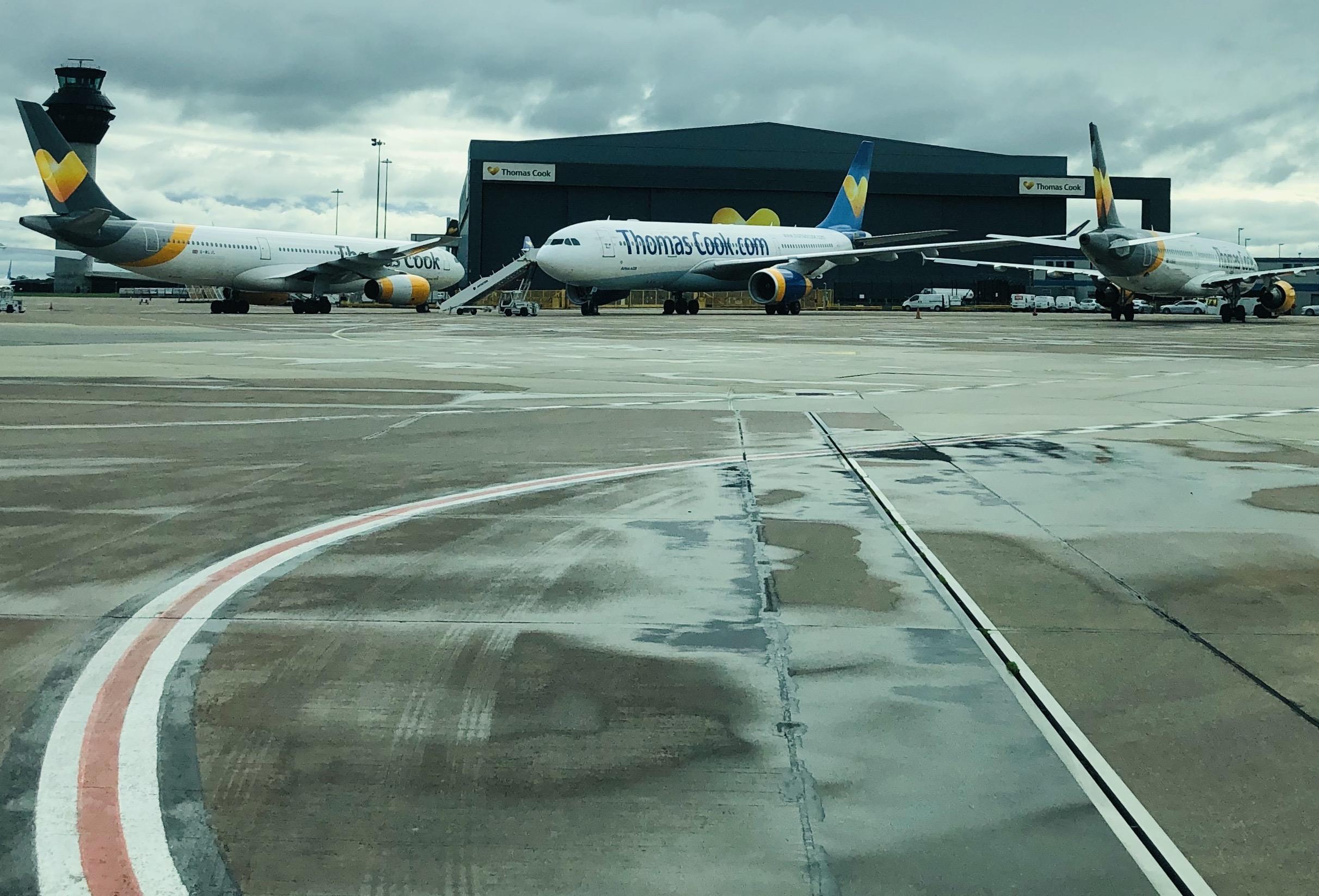Plane passengers face higher fares and less choice this winter following collapse of Thomas Cook and Flybmi
Exclusive: Flybe and Ryanair are cutting UK flights, while British Airways, Jet2 and Loganair are growing

Higher fares and less choice: that is the winter outlook for many travellers following airline collapses and contractions.
This weekend marks the change from summer to winter schedules for Europe’s airlines – and some dramatic changes are taking place compared with the last winter season on short- and mid-haul routes.
Far fewer seats are available to Egypt and Tunisia resulting in sharp price increases, while travellers from Northern Ireland will have less choice.
But routes from the UK to eastern Europe are blossoming, and Aberdeen and Southend airports will see strong growth.
More than one million seats to, from and within the UK have been lost following the collapse of Flybmi and Thomas Cook Airlines.
According to data supplied by Cirium and analysed by the Anker Report for The Independent, the failure of Thomas Cook in September will take 900,000 seats out of the market this winter. In aviation, the winter season is defined as the five months from late October to late March.
The analyst Ralph Anker says the impact will be felt most strongly in North Africa: “Thomas Cook’s failure has impacted capacity to Tunisia, down 40 per cent, and Egypt, down 30 per cent.”
The collapse of Flybmi in February 2019 means the loss of 110,000 seats compared with last winter on short-haul links from regional airports.
But much more significant is the one-seventh reduction in the size of Flybe’s operations, year on year. The airline, which is being rebranded as Virgin Connect, will cut 600,000 seats.
Flybe is closing operations at Doncaster-Sheffield airport, and cutting links to the continent from Birmingham, Manchester and Southampton.
Ryanair is cutting 265,000 seats this winter. Last winter, the carrier flew four times a day between Stansted and Edinburgh; for the summer season that dropped to four flights a week; and now the route has been cut completely, leaving easyJet as the only player on the route.
Ryanair has blamed uncertainty over Brexit for shrinking its UK operation, which will be 3 per cent smaller this winter than last.
Its main rival, easyJet, is showing a very small increase of 0.7 per cent, adding 84,000 seats.
Some of the gaps within the UK and Europe are being filled with sharp increases in seats provided by three UK airlines: British Airways, Jet2 and Loganair, which are adding 1.2 million seats between them this winter.
British Airways will grow by 4.5 per cent, adding 560,000 seats. And Jet2, based at Leeds Bradford airport, is putting on an extra 330,000 – a rise of 22 per cent.
Way ahead, though, is the Scottish airline, Loganair, which is growing by two-thirds – adding 280,000 seats.
There are some fresh Loganair links, such as Edinburgh to Stavanger and Bergen in Norway. But much of the growth comes from picking up routes that larger airlines have dropped, such as Flybe’s former links from East Midlands to Edinburgh and Glasgow.
Eastern Europe is a key growth area. Wizz Air, based in Hungary, is increasing its seat capacity to and from the UK by one-sixth, adding 310,000 seats. Routes from Luton to both Moscow and St Petersburg opened this month.
New airlines in the UK this winter compared with last winter include Albawings of Albania, Flybosnia and Montenegro Airlines.
The UK airport with the highest growth is Southend, up 42 per cent, while traffic in Aberdeen is expected to grow by 11 per cent.
The city that is the biggest loser is Belfast – where the International airport is 14 per cent down, and George Best Belfast City loses 8 per cent.
East Midlands, which was particularly hit by the collapse of Flybmi, also loses 8 per cent.
“Overall, UK capacity is, amazingly, virtually unchanged, despite the failures,” said Ralph Anker.
Join our commenting forum
Join thought-provoking conversations, follow other Independent readers and see their replies
Comments
Bookmark popover
Removed from bookmarks